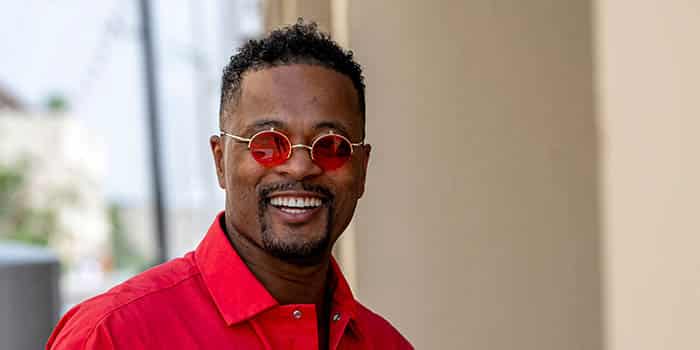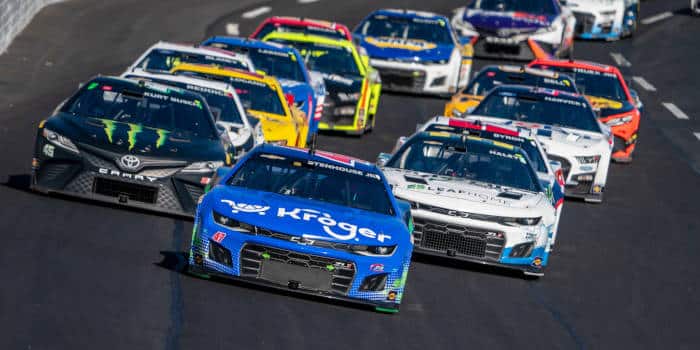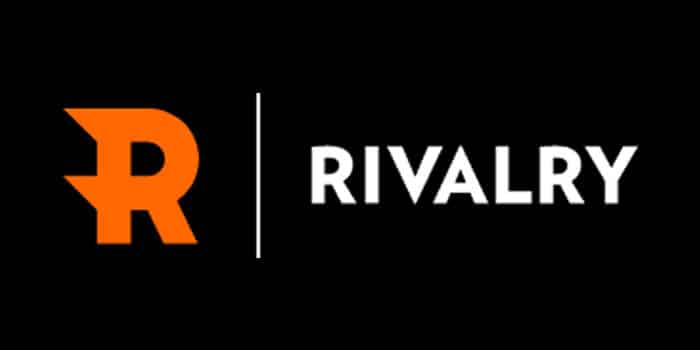- Casino
- By State
- Alabama
- Alaska
- Arizona
- Arkansas
- California
- Colorado
- Connecticut
- Delaware
- Georgia
- Florida
- Hawaii
- Idaho
- Illinois
- Indiana
- Iowa
- Kansas
- Kentucky
- Louisiana
- Maine
- Massachusetts
- Maryland
- Michigan
- Minnesota
- Mississippi
- Missouri
- Montana
- Nebraska
- Nevada
- New Hampshire
- New Jersey
- New Mexico
- New York
- North Carolina
- North Dakota
- Ohio
- Oklahoma
- Oregon
- Pennsylvania
- Rhode Island
- South Carolina
- South Dakota
- Tennessee
- Texas
- Utah
- Vermont
- Virginia
- Washington
- West Virginia
- Wisconsin
- Wyoming
- By State
- Slots
- Poker
- Sports
- Esports
Kornilov and Galstyan on the Convergence of Media and Sportsbook

With DAZN BET revealing its plans to disrupt the sports betting space from the start of the next football season, does this mark a watershed moment for the convergence of betting and media? We examine the challenges and opportunities involved across the wider industry, with Nora Galstyan, Head of Compliance at Technamin, and Alex Kornilov, CEO at Betegy.
Q: How are the sports betting industry and sports media converging across different channels and to what extent is betting becoming part of the overall sports entertainment industry?
Kornilov: “Digital entertainment has evolved, going back 10 years we had TV as the primary channel, then desktop, then online affiliates, and now, social.
“These channels are now merging into one experience, in social for example, you can view video content created by AI that is a repurposed version of previous content. Alongside this you have the possibility to merge twitter and broadcast, which are two channels, but effectively one unit of media consumption as the audience enjoys both during a sporting event.
“If we talk about how betting becomes part of the entertainment mix, then in many ways we can say the format is still the same as it was a decade ago, with TV channels – where each is treated as a separate entity with a lack of fluid movement between them. For example, an ad on TV, another on social media and then an incentive to bet on mobile. For this to truly converge, we need to see a cross-platform experience where social betting via mobile and contextual (narrative-based) betting work hand in hand. This allows for a seamless player journey from media to placing a bet. We’re already seeing this happen now, and this is quite literally, the future.”
Galstyan: “We are living in an age in which social media has become almost inseparable from our daily lives, so it was only a matter of time before it mixed with the sports betting industry. Most sports betting websites now do the bulk of the advertising and marketing via social media as it allows them to promote their services to a wider audience. Social media platforms also let us reach our target audience, which is great in terms of promotion and managing marketing campaign budgets. Nowadays, having an online presence and promoting it through social media is a must.”
Q: With so many forms of entertainment competing for the attention of the viewer, how powerful can sports betting content become as an engagement tool for broadcasters?
Galstyan: “Sports by nature are social events. This is partly why they are so engaging for audiences, and their content can be exceptionally impactful on social media. Combine them with social media, where we are exposed to most of the online content available for us, and you have a powerful engagement tool. People want to see their favorite teams, events, and matches as soon as they unlock their phones, and broadcasters can leverage this global demand for sports betting to engage their audiences on social media.”
Kornilov: “Looking at the revenue flow from sports and betting events we can determine that the majority of betting is narrative-based, and indeed, driven by the player feeling they have superior knowledge of their team than the house. Betting (and indeed predicting the outcome of an event) has always been an incredibly powerful part of sport – and it’s transforming the way sports fans are consuming media.
“Micro-betting is going to be a key part of this. Take NFL or cricket, both of which runs for hours. If we have sports betting content customized specifically to those markets – merge that with the event is being broadcast (with live odds presented on screen), you’ve opened a whole new world of entertainment to your audience. In effect, you’re switching the viewer from observer to active participant. We (Betegy) are one of the few in the world who can offer this service, with our bespoke platform designed specifically to create such a narrative-based element.”
Q: What does the future hold for the convergence of betting and media, particularly when it comes to attracting a younger demographic?
Kornilov: “When it comes to younger demographics, you’re looking at different preferences and attention spans. Take KYC and sign-up. The convoluted process is a blocker. Attracting a new demographic needs the entire process to be seamless in order to grab the attention of the potential customer.
“Let’s take fantasy and skill-based betting, for example, I believe this will be key part of attracting the younger demographic. To provide a platform for onboarding, the latest demographics need the process to be gamified and provide a motivation to sign up. It’s all about providing a brand, community and a compelling sports narrative to get players involved.”
Galstyan: “The younger generation could, to a certain extent, be dubbed the ‘social media generation. The younger the age, the less likely they are to follow traditional or printed media. They will instead consume the bulk of their information from social media platforms and influencers. As sports betting is slowly becoming more prevalent among youngsters, now is the time for operators to engage them via their favorite applications. I think that we will see more of this moving forward, especially with the popularity of services like Twitch and live streaming technology.”
Q: How does the acceptance of a close relationship between media and sports betting vary from market to market?
Galstyan: “Media plays a significant role in the betting industry in terms of advertising and product placement. The tighter the connection is between media and betting, the more bets can be received. Working closely with advertising agencies, sports betting websites can target a wider audience and cater to that market.”
Kornilov: “Looking globally – I think the US offers the most advanced market where these concepts can easily be merged together The demographics are ideal and fantasy sports have always traditionally merged media and insights – as that is how US sports entertainment is consumed today. Again, we can see this in the way they bet. It’s all about the story (take Tom Brady) and stats (throws, touchdowns, whatever). The more exposure we have will no doubt further drive mainstream interest and in turn the more fusion between the two.
“Fantasy sports are a great example of this. They are fast becoming socially accepted and a key part of the media and sports mix, which has accumulated millions of followers over the last decade. This is already what the mainstream demands – and as it grows further, the greater such merged content will improve. This in turn will drive further success together, which will then establish proper market acceptance. It is after all, all about delivering entertainment.”
Q: How do you see the future relationship developing between sports betting and the wider media?
Kornilov: “This is the future, as it is inevitable. What we need to remember is that this is all entertainment, and especially so in the US, where Betegy is already doing some fantastic work with broadcasters. It’s all about developing that relationship in line with regulators, and in turn, driving a merger that will be a win-win for everyone.
“Not only is it the future – but we also need to remember that betting has always been part of the sports media, because it is quite literally part of the fun of sport – creating a narrative and predicting the outcome based on knowledge and information. Of course, believing you know more about your favorite team than the bookmaker is always going to give a feeling of an edge over the house.
“Take Ancient Rome for example, betting back then was all about chariot races. We’ve got plenty of historically preserved media from their time, and guess what, plenty of their sports news had the same merger of sports and betting! Nothing’s changed – just the channel in which it’s delivered. I believe this element of entertainment around the sport has always been with us and always will be.”
Galstyan: “This is a relationship that is destined to grow with time. Sports betting is becoming more prevalent and more countries are beginning to show a friendly stance towards it, which is an indication that we will be seeing more of it in the wider media. Influencers are talking about it more, we are seeing more entertainment-focused on sports themes, and there is an ever-growing interest that is being constantly generated. This is the perfect opportunity to become more active on social media, engage fans, and take the industry to the next level.”
Related Topics:
Stoyan holds over 9 years of esports and gambling writing experience under his belt and is specifically knowledgeable about developments within the online scene. He is a great asset to the Gambling News team with his niche expertise and continual focus on providing our readers with articles that have a unique spin which differentiates us from the rest.
Must Read
Insider
May 15, 2025
Joshua Gamble: “Cross-sell is dead. What next?”
More Articles




Sports
July 17, 2025
Canelo Alvarez Bets $500K on Usyk Defeating Dubois

Sports
July 15, 2025
Undercover Spotters Catch Wimbledon Betting Spies

Industry
July 15, 2025
UK Considers Gambling Tax Hike to Fill Budget Gap














